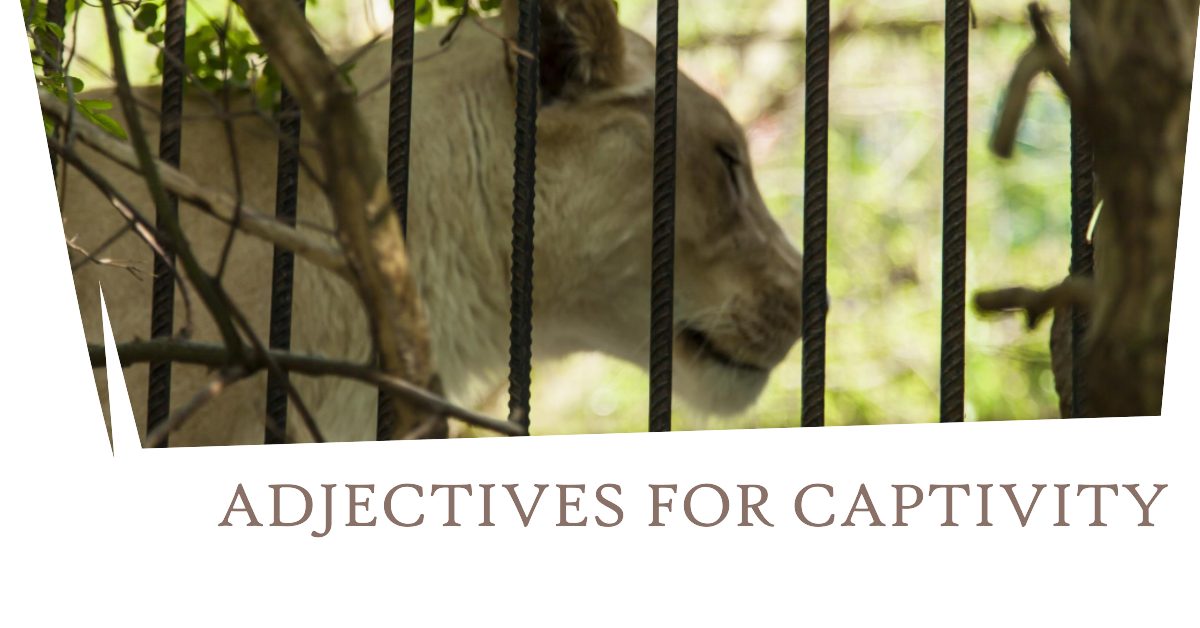Adjectives for Captivity – Words to Describe About Captivity
Captivity is a state of being confined, held, or detained against one’s will. It can be a difficult experience, and it can evoke a range of emotions. To better understand the feelings associated with captivity, it is helpful to look at the various adjectives used to describe it. In this article, we will explore some of the most common adjectives used to describe captivity.

Adjectives for Captivity | Words For Captivity
Restrictive: Restrictive describes something that limits or restricts freedom or movement. In the context of captivity, it implies that the person is not able to move freely or do as they please.
Oppressive: Oppressive describes something that is harsh, cruel, or unbearable. In the context of captivity, it implies that the person is being treated unfairly or cruelly.
Unjust: Unjust describes something that is not fair or just. In the context of captivity, it implies that the person is being held against their will without any legal justification.
Forced: Forced describes something that is done against one’s will. In the context of captivity, it implies that the person is being held against their will and is not able to escape.
Constrained: Constrained describes something that is limited or restricted. In the context of captivity, it implies that the person is not able to move freely or do as they please.
Imprisoned: Imprisoned describes something that is confined or held in a prison or other place of confinement. In the context of captivity, it implies that the person is being held against their will in a place of confinement.
Restrained: Restrained describes something that is held back or kept in check. In the context of captivity, it implies that the person is being held back or kept from doing something.
Confined: Confined describes something that is restricted or limited. In the context of captivity, it implies that the person is not able to move freely or do as they please.
Captive: Captive describes something that is held or confined against one’s will. In the context of captivity, it implies that the person is being held against their will and is not able to escape.
Trapped: Trapped describes something that is confined or held in a place from which it is difficult to escape. In the context of captivity, it implies that the person is being held against their will and is not able to escape.
Conclusion
Captivity can be a difficult experience, and it can evoke a range of emotions. To better understand the feelings associated with captivity, it is helpful to look at the various adjectives used to describe it. In this article, we explored some of the most common adjectives used to describe captivity, such as restrictive, oppressive, unjust, forced, constrained, imprisoned, restrained, confined, captive, and trapped without recognition
FAQs
What is captivity?
Captivity is a state of being confined, held, or detained against one’s will.
What are some adjectives used to describe captivity?
Some adjectives used to describe captivity include restrictive, oppressive, unjust, forced, constrained, imprisoned, restrained, confined, captive, and trapped.
What emotions can captivity evoke?
Captivity can evoke a range of emotions, including fear, anger, sadness, and frustration

